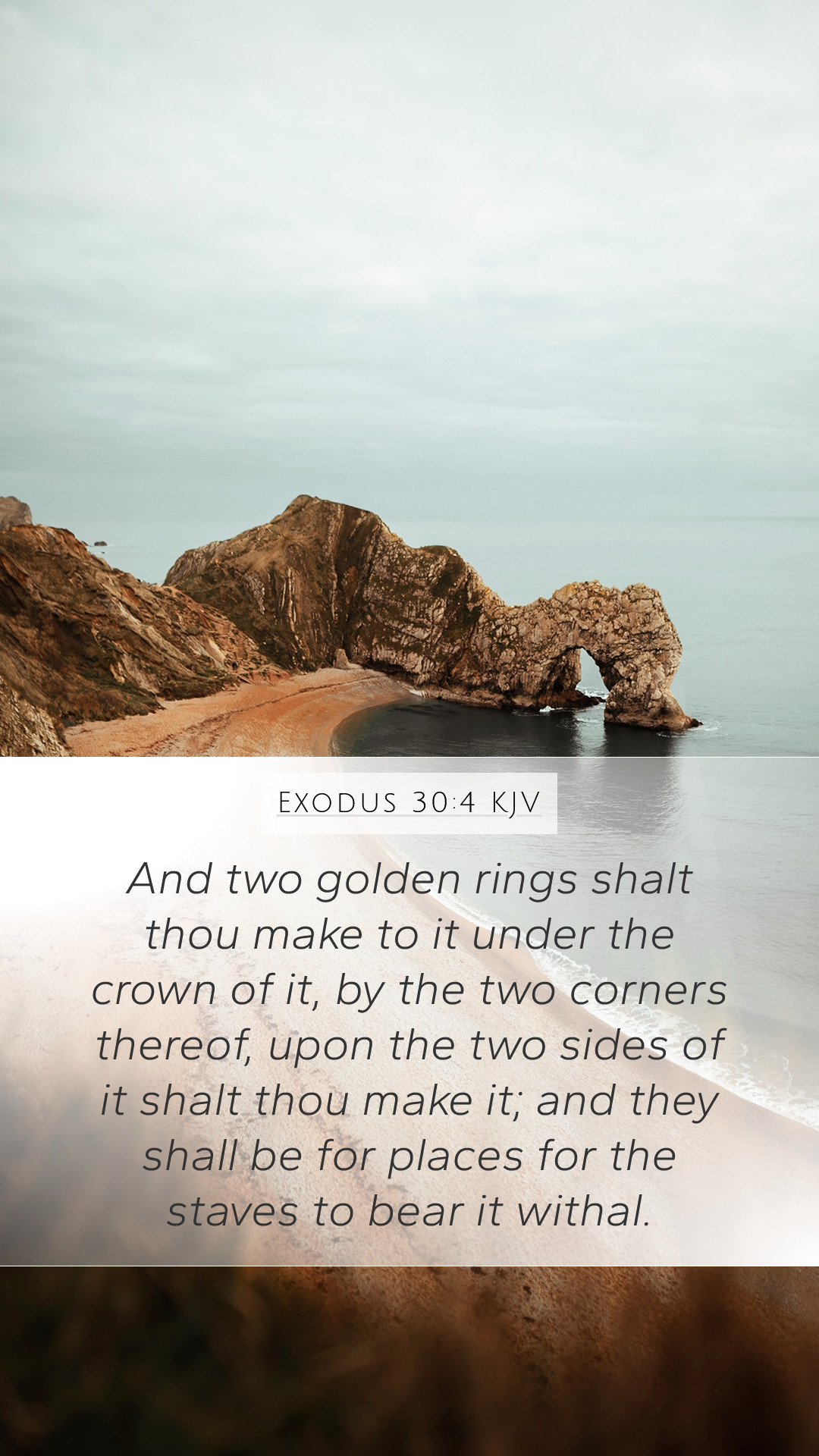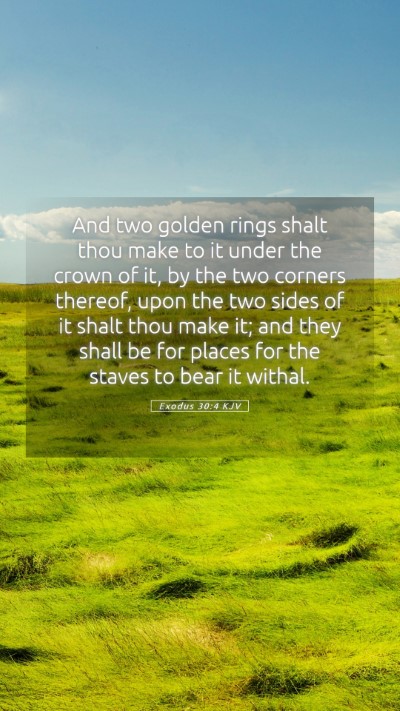Bible Verse Meaning and Commentary on Exodus 30:4
Exodus 30:4 (KJV): "And two golden rings shalt thou make to it under the crown of it, by the two corners thereof, upon the two sides of it shalt thou make it; and they shall be for places for the staves to bear it withal."
Understanding the Context
The verse Exodus 30:4 is part of the instructions given to the Israelites regarding the construction of the Tabernacle, which served as a portable earthly dwelling place of God among His people during their wanderings in the desert. The specificity in God’s instructions demonstrates the importance of reverence and precision in worship.
Key Themes and Insights
- Divine Instruction: God meticulously outlines how the altar should be constructed, highlighting the necessity of following divine patterns in worship (Matthew Henry).
- Symbolism of Gold: The use of gold signifies purity, glory, and divine presence, indicating the holiness of the offerings made at the altar (Albert Barnes).
- Mobility of Worship: The rings for the staves illustrate that worship must be portable and adaptable; God’s presence was to be with His people wherever they wandered (Adam Clarke).
- Preparation for Sacrifice: The altar's design emphasizes the importance of being ready to present offerings to God and the structured approach required for worship (Matthew Henry).
- Specificity in Worship: This verse underlines that God values precise obedience in how worship is structured and conducted (Albert Barnes).
Exegesis and Interpretation
The detailed instruction regarding the construction of the altar and its mobility involves a deeper understanding of the significance it holds within the larger narrative of the Israelites' escape from Egypt and their covenant relationship with God.
1. The Meaning of the Rings
The golden rings signify a level of permanence amidst the temporary nature of the Israelites’ journey. They represent the idea that God's covenant is eternal, even if the physical structures are not (Matthew Henry).
2. The Corners and Dimensions
This verse also speaks to the importance of boundaries and designated spaces for worship. Each aspect of the altar's design is purposeful and intentional, symbolizing God’s order and the sacredness of the environment (Adam Clarke).
3. Connection to Hebrews 9:10
Hebrews 9:10 references the physical elements of the Old Covenant and implies that they point to spiritual truths, which underlines the transition from physical worship to the spiritual fulfillment in Christ (Albert Barnes).
Cross References
- Exodus 27:4-5: Discusses the specifications of the brazen altar, further emphasizing the importance of particular details in worship.
- Numbers 4:15: Details the Levites' duties regarding the handling of the Tabernacle and its sacred objects.
- Hebrews 9:11-12: Presents Christ as the high priest with a superior ministry compared to the Levitical order.
Application and Relevance
Understanding this verse offers insights into our approach to worship today. Just as the Israelites are called to prepare their offerings with care, believers today are encouraged to come to God with reverence and intentionality in their worship practices.
Incorporating this understanding into our lives, particularly through Bible study insights, Bible study resources, and Bible study lessons can enhance our spiritual journey and deepen our relationship with God.
Conclusion
Exodus 30:4 serves not only as a historical account but also as lasting instruction for how we approach God in worship. By embracing the principle of carefulness in our dedication to God, we can cultivate a worship experience that aligns with His desires and commands.
This commentary aims to enrich your Bible verse understanding and provide Bible verse interpretations that apply to both historical context and modern worship practices.


